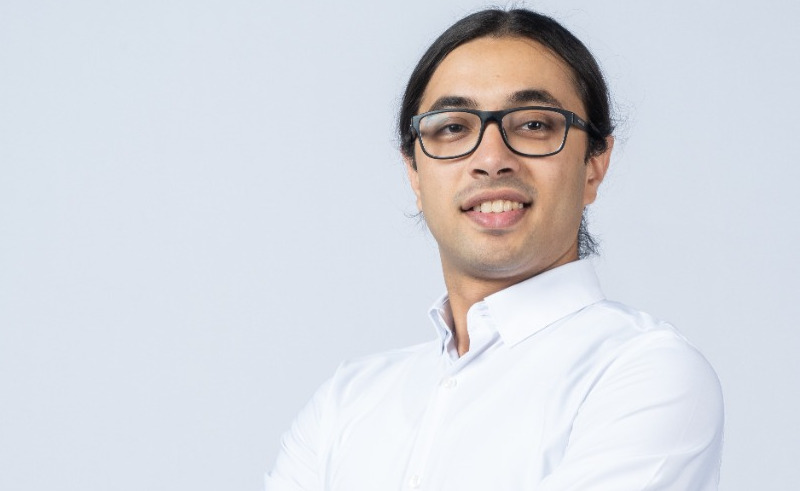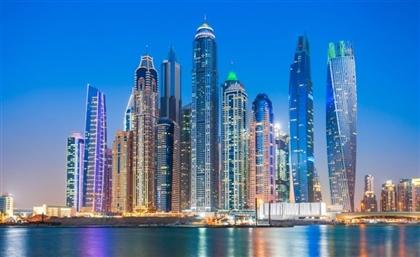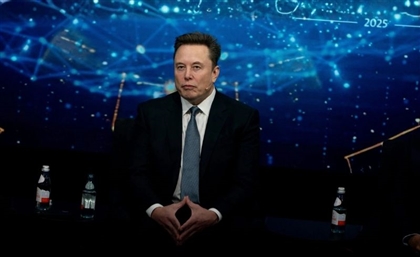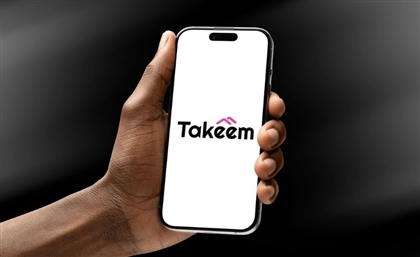How Seavo is Leading the Green Transition of Egypt’s Marine Sector
With e-scooters powered by AI, Egypt-based startup Seavo seeks to make Egypt’s marine sector safer for sea life, as well as the environment.

Created to address the dangers of climate change, Seavo - an Egypt-based startup founded by young engineer-turned-entrepreneur Aly Magdy - produces water scooters that are guided by AI and powered by electricity, rather than fossil fuels. With its launch slated for August 2022, Magdy already has his eyes set on expanding Seavo’s product line to include electric boats and ships.
“We don’t have to choose between tourism and products that use fuel,” Magdy tells StartupScene. “It doesn’t have to be a dilemma. There are eco-friendly alternatives that protect coral reefs and attract tourists as well.”
Egypt’s carbon footprint is significant, producing 269.5 million tons of carbon dioxide (CO2) emissions in 2020, according to the World Data Atlas report by Knoema. If these trends continue, Egypt could see its coral reef habitats reduced by 74% in 2100, making the country lose more than 90% of its coral reef tourism, according to a study presented at the COP26 UN Climate Change Conference in 2021.
MAKING THE BUSINESS CASE FOR SUSTAINABILITY
Founded in February of 2020, the timing of Seavo’s arrival onto the entrepreneurial landscape would prove to be as challenging as it was prophetic, teetering on the brink of a pandemic that would test even the most experienced entrepreneurs yet one that would also accelerate global consciousness about climate change.
Naturally Magdy found it almost impossible to raise funds for his embryonic innovation. “Being a hardware startup in MENA, we are dependent on the supply chain from China and other countries, and this was difficult during the COVID-19 pandemic,” Magdy explains. “We were competing with big names and sourcing lithium batteries and microchips. We were therefore not given the same luxury as software startups in terms of funding from incubators and investors.”
Meanwhile, the pandemic started to unleash its full impact on global markets. “We had pre-orders, and delivery was due in June and July of 2020,” Magdy says. “Traction was initially high in the local market, but when the pandemic happened, everything stopped. Customers started to withdraw their deposits. They were not willing to take the risk of buying the product.”
As a result, Magdy was left with no choice but to pivot his business. He changed his business model to provide his product as a service, offering it through leasing stations to increase accessibility and affordability to B2B customers. These leasing stations were set up at resorts, entertainment centres, and yacht trips in the Red Sea governorate, particularly in Hurghada and Marsa Alam. “This pivot allowed us to enter different sectors, increase our potential in the market, and made us more well-known to B2B customers,” explains Magdy.
Soon after introducing his product, Magdy began getting serious interest from investors. “Once we released the product, investments became a lot better. We got different contracts from international distributors,” he says.
To date, he’s received hundreds of orders from the GCC, particularly from Dubai and Qatar. There is also international interest in his product after its appearance at Paris’s Viva Technology exhibition in June, 2022. “We managed to do something lighter and more power efficient than the available international products by 40%,” says Magdy. “We are also the only company using AI to extend battery lifetime. So, we have huge potential internationally.”
Locally, however, interest is slow to pick up. From raising awareness on eco-friendly alternatives to convincing businesses on why they should consider products that protect sea life, Magdy struggled with getting buyers on board. “Speaking to B2B in Egypt, they mainly care about money. ‘How much money am I going to save, and how much money am I going to generate by using this product’,” he says.
Thanks however to the Ministry of Environment’s recent EcoEgypt campaign aimed at protecting the marine environment in the Red Sea, many organisations are now incentivised - if not made - to use eco-friendly alternatives. “But there are also some customers and organisations who want to be the first green hotel, resort or beach,” Magdy says. “They want to protect their surrounding environment for themselves and for their guests.”
CREATING A SUSTAINABLE FUTURE
To increase production, Magdy is working with third party suppliers outside the country, mainly in China, to manufacture Seavo products and enter new markets. While the startup is based in Egypt, he aims to increase exports to the Middle East, Europe and Asia. “There is generally more awareness with regards to eco-friendly products, particularly in Europe and GCC countries,” he says.
Despite a growing appetite for his products abroad, Magdy is determined to create real impact and reduce marine emissions in Egypt. He wants Seavo to replace 10% of fossil fuel products in the Red Sea within two years, reducing emissions by at least 80 tonnes of CO2 a year. He’s also intent on introducing a plethora of additional electric marine products into the market, including those manufactured by other companies. “We want to expand, not only with our products, but with other products in the marine sector,” Magdy says.
Of course a single startup, no matter how determined, is just a speck in the proverbial ocean of sustainability. Magdy hopes the public sector will play a key role in supporting his vision by developing the requisite infrastructure for electric-powered marine vehicles (such as charging stations) and market entry incentives including tax breaks.
Private sector initiatives also have an integral role, bringing in the technical know-how to make critical products - like batteries - available in the market. “We don’t need to develop the technology itself,” says Magdy. “But we need to attract the companies that have the technology to operate here, to have competitive prices. We’re going to need those batteries, not only for marine products, but for other products and applications. This will enable us to be a hub for electric products not only for the Egyptian local market, but for the whole African continent.”
Magdy believes that paving the way for eco-friendly alternatives is no longer an option. “Climate change could be trendy, but it affects us on many levels-the food supply chain, the environment, and the weather. So, we cannot keep using the same products, without looking at more eco-friendly alternatives. It’s not a luxury anymore."




















